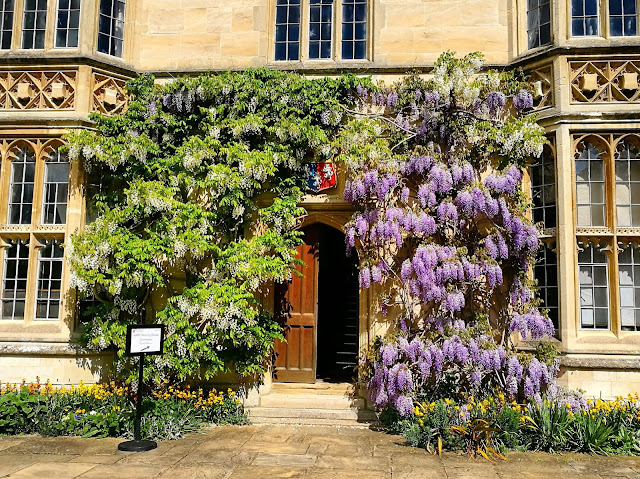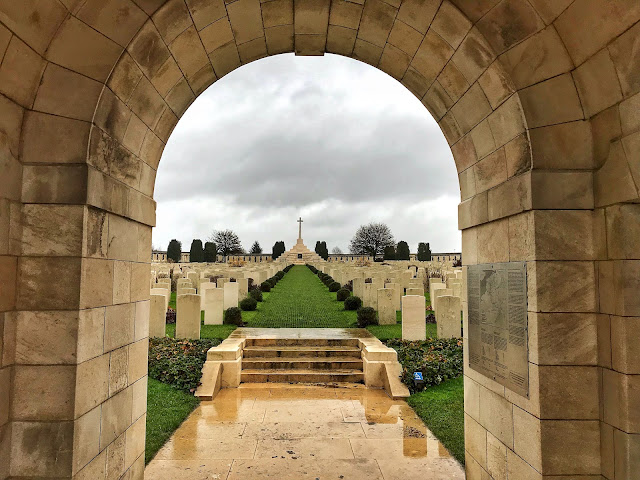DPhil Diaries Five: What I Did on my Holidays (Essays, Conferences, Battlefields)
Today is the first day of Trinity term, the third term of my PhD, so I thought this was a prime opportunity to write a little update of what I've been up to over the last couple of months. If anything, this is just to prove (to myself mostly) that I spent the Easter vac. doing more valuable things than just reviving my love of Just Dance on the Nintendo Wii.
So I ended last term back in March by submitting my 'transfer of status' essay. This is basically the one piece of assessed work I have for this academic year and was a 5,000 word essay on one area of my research that had to be submitted to the faculty alongside a 1,000 word revised research proposal. I'm not sure if this is how it works for history PhDs at other universities, but this is my experience of the Oxford system.
The essay I wrote was on the YMCA's approach to morality in the First World War, using the case studies of sex and alcohol. I chose this topic as it demonstrates within quite a small snapshot the general approach of the Association, of its moralistic character, and its ideals of self-betterment and Christian duty.
The essay itself was fine, although I did write it very slowly over a number of weeks. What I found more difficult to complete was the research proposal. For me, one of the most difficult elements of PhD work is trying to clearly and succinctly write about what my topic is and why it is important. I get severe writer's block with anything resembling a proposal or an abstract and even though I've now written many of these, I don't feel that they get any easier.
I could write endlessly about the YMCA and their work, about social evangelism, and religion in the First World War (as I regularly do on this blog), yet there's something about pinning it down to be neat and precise that I really struggle with. The research proposal for my transfer of status went through about three largely different versions before it came close to something I was happy with and could submit, and each one was very slow and tricky to write.
Finally I managed to get the two pieces of work completed and submitted them on the penultimate day of term. I'm yet to hear feedback on either of them (the second half of the transfer process happens this term) so it's still fingers crossed that what I've done is good enough. I'll probably write a blog in more depth about this whole 'transfer' process next month.
The week after term ended I attended the annual Oxford/ Kings College London joint graduate conference for history of war students at All Souls, where I presented a short 15 minute paper on the social role of religion in the YMCA's work. I think this was well-received, although the questions I was asked afterwards did highlight a few things I should clarify in future iterations of the paper. I'll be presenting a revised version of this at a larger conference in June so I am grateful to have had the opportunity to test it out in the early stages now.
This conference was also a really good opportunity to meet fellow history of war students, both in my own faculty and those working at Kings. I feel as though the DPhil history cohort is so disperse at Oxford that I'm still meeting new people and so it was great to get to know a few more here, especially over the dinner afterwards.
What I was surprised at at this conference, was the large number of ancient historians. It is probably the fault of my own bias, but I generally perceive history of war studies to be much more modern, focusing largely on the last two hundred years. However, a good half of the attendees here were working on the ancient world, with several on Greek warfare. It was interesting to hear about projects so wildly dissimilar from my own, but this did also limit the overall relevance of the conference to my interests. Surprisingly, there were just two of us talking about the First World War.
 The break from term-time busyness meant that I was able to get started on some work in the archive at the Imperial War Museum, reading the diaries and letters of both YMCA workers and hut users. It's a bit of hassle to order files to the archive, but they're really valuable sources for my work, as well as often just being really entertaining. With the diaries especially, it's great to see an honest account from those who were directly involved in the YMCA's work and their feelings as the war progressed.
The break from term-time busyness meant that I was able to get started on some work in the archive at the Imperial War Museum, reading the diaries and letters of both YMCA workers and hut users. It's a bit of hassle to order files to the archive, but they're really valuable sources for my work, as well as often just being really entertaining. With the diaries especially, it's great to see an honest account from those who were directly involved in the YMCA's work and their feelings as the war progressed.While there, I also visited the museum's temporary exhibitions marking the centenary of the First World War's armistice. Some of these were very good, while others were more artsy ones that weren't really my thing. I wrote a whole post about the exhibitions here.
In some typically bad planning, I found myself going back to London the day after I went to IWM to go visit friends in Kent for the weekend. This was a lovely chance to catch up with old school friends and I even managed to drag them round Canterbury Cathedral where there are some fascinating memorials, including one to Sir John French and another to five members of the Abadie family, who all die in army service between 1901 and 1917 I particularly liked how their family plaque was carved with the medals of each person.
After a bit of time relaxing back in Gloucestershire, I headed off to Belgium for a fantastic week on the battlefields. I've written about this a lot on my blog (you can read my daily diaries here) so I won't dwell on it too much, but it was really great to get out 'in the field' and be immersed in First World War history. I know I think about the war every single day, and read about it on the vast majority, but there's something different about actually being in the war sites and it is also refreshing to spend a good deal of time outdoors, rather than reading indoors. I really loved the days I had walking and cycling in some wonderful Spring sunshine, and I've returned to uni with a tan that looks like I've been somewhere more exotic than muddy old Flanders.
 The following week I was back in Oxford for a far less adventurous week in the library, chugging through the post-war journals of the YMCA. One of the challenges I'm grappling with at the moment is deciphering what the actual impact the war had on the Association and how it shaped its work in the years after the Armistice. I don't think I'm near to figuring that out yet, but getting through the journals will be a great start on this.
The following week I was back in Oxford for a far less adventurous week in the library, chugging through the post-war journals of the YMCA. One of the challenges I'm grappling with at the moment is deciphering what the actual impact the war had on the Association and how it shaped its work in the years after the Armistice. I don't think I'm near to figuring that out yet, but getting through the journals will be a great start on this.In addition to this reading I also got started on another conference paper, which I delivered last week at the Recording Leisure Lives conference at the University of Bolton.The challenge here was to write about my work for a social history audience, remembering not to take certain parts of the religious and war history for granted. It was nice to write a sort of 'back to basics' talk introducing people to the YMCA, albeit around the theme of 'finding leisure in war'.
I don't really get nervous about talking at conferences, but with this one I was a little unsure of how my paper would fit with the others and if people would find it interesting. Luckily I managed to mention a number of themes that were also raised in others' papers and received some good feedback both on the day and afterwards.
Like the history of war conference I attended last month there was a huge variety of papers presented, yet the vast majority were really interesting, even those that dealt with completely different from my own. I particularly enjoyed Jean Williams' keynote on the social history of Brooklands racing, and other great topics including voluntary knitting in the Second World War, 'monkey-parading' in the inter-war north-west, and leisure in Manchester as depicted in Victorian press.
It was then back home for a lovely Easter in the heat-wave, complete with some great cycling and hiking, before returning this week to Oxford to get back into the library and to plan the forthcoming term.
At the moment I'm really enjoying working on this blog and I'm excited to be putting up regular content. If you hadn't noticed, I've started uploading a new post each Sunday at 6:30pm and have some great plans for future articles, reviews and memorial posts.
I'm also putting up more regular content on my twitter feed (@KathrynWW1), with more photographs from Belgium and some interesting snippets from my research. If facebook's more your thing, be sure to follow me there (/Kathryn1418) so you don't miss a future post. There's also a 'newsletter' feature on the right of this page that enables you to have my posts emailed directly to you each week.
Kathryn









No comments: